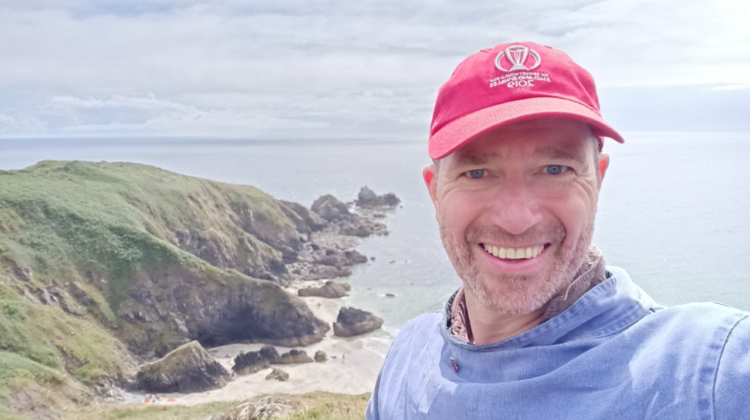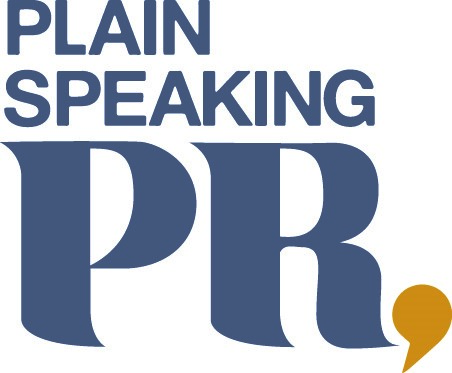
It’s World Mental Health Day. Workplace mental health expert Tom Oxley offers some simple but effective strategies for taking care of our wellbeing…
Just because he’s a workplace mental health strategist doesn’t mean that Tom Oxley is immune to the stresses and strains of this year.
The TEDx speaker says: ‘I’ve been on what I call the corona-coaster.’ And he sums up the tumultuous journey for all of us. ‘To begin with, we were all in this together, we clapped for carers, and we bedded in.
‘Then things got cancelled, we stopped seeing people we loved, there was division on social media, there was a lot of heartache around and actual genuine grief and we went into a dip. Then we started ‘climbing up again into next phase’. The uncertainty has remained, however, as he says. ‘We don’t quite know what’s at the brow of the hill.’
And he cautions against getting too ahead of ourselves whilst on the upward trajectory: ‘We are led to believe there’s a mountain top of wellbeing we are striving for but that’s bollocks!
‘I, like a lot of people, have experienced a range of emotions. I try to make sense of it some days and other days park it,’ says Tom, who lives in Norwich. ‘I’ll go for a walk in Earlham Cemetery; swim at Waxham; get a gelato on Opie Street – there is joy around as well as stress and difficulties.’
His seven-year-old daughter had been off school since March. ‘She quickly realised that home wasn’t school, her parents weren’t teachers and the curriculum didn’t fit into her plans for a summer in the paddling pool! She’s gone back to school pretty refreshed.’
And what a year it’s been in the workplace – wherever that that may be these days. With so many employees sent home to either work (or not work, as the case may be), spring was followed by a ‘weird summer of cancelled holidays and difficult stuff going on in the world,’ says Tom. ‘It was a really difficult time for organisations and it still is. Lockdown is one thing; recession is another.’
Since setting up Bamboo Mental Health in 2013, he says ‘I must have reviewed 35 or 40 organisations. I interview staff and I listen to staff about their experiences.’
Tom has worked with all sorts of employers, from ExxonMobil and Cadbury, all the way through to Birketts Solicitors and East Anglian Air Ambulance, closer to home. ‘I’m equally excited by a global oil giant or a pub,’ he says.
He runs mental health audits and strategies for employers, working with HR directors, wellbeing teams and occupational health managers. And his philosophy is that any employer can support any employee on mental health.
Unsurprisingly, his services have been called upon this year. ‘Organisations are using me at the moment to give their people and leadership teams a perspective on this.’
Since March he’s been running sessions on remote management and emotional support. ‘I was very busy in the early summer but I could hear a dog barking in the distance in the middle of summer. So I went camping for a week in Waxham and went to Cornwall. And now it’s taking off again.’
Loss is coming in many forms this year. Take the temporary closure of much-loved Cinema City in Norwich, for example. ‘Cinema City is a blow,’ says Tom. ‘It was a place that’s been with us for such a long time – since the horse hair seats of the 80s. Organisations have to balance mourning for what’s lost to moving on for what the future could be like.’
Tom believes that there needs to be a different employee/employer relationship during these testing times, with people needing emotional support and to be heard.
It’s important for people to feel ‘psychologically safe,’ says Tom. ‘We are not talking about hand sanitisers here. We need to understand that our businesses need a sense of safety and security to perform, adapt to these changes and grow into something new.’ And he adds: ‘We need to feel safety and security within our teams.’
And he makes the analogy: ‘Have you ever tried to get your child to hurry up by shouting at them?’ It doesn’t tend to work, does it? ‘And it’s the same with organisations. Organisations need calm and to be given time.
‘I don’t go to them with all the answers on mental health but I go to them with the right questions, ask them where they are now and where they want to be.’
He adds: ‘I don’t ‘do’ wellbeing (my wife does; she does yoga) and I don’t do anything therapeutic. Instead I facilitate that conversation with organisations about mental health.
‘I feel that there are a lot more conversations about wellbeing to be had within leadership teams. People are much more aware about wellbeing and it’s important. This subject is very much in people’s homes now and the younger generation is very articulate on this sort of stuff.’
And he predicts that it will be even more of a buzzword next year. He urges organisations to ‘start the dialogue with its people and be ready for the next stage of all this.’
In the meantime, what can we all do to give our mental health a bit of a boost? ‘Go for a walk,’ says Tom, simply. ‘Whatever the weather; whatever the time. Notice the Norfolk hedgerows changing colour. Just get out there. The benefits are significant,’ says Tom. ‘Even if it’s a short walk. It doesn’t have to be 5k or 10k. Go and change your scene. Breathe in some air.’
So what’s he doing this World Mental Health day? A quick look at his LinkedIn and he’s got a simple strategy for today: every minute he spends on social media he will much about with his wife and kid for 10 minutes!









Leave a Reply